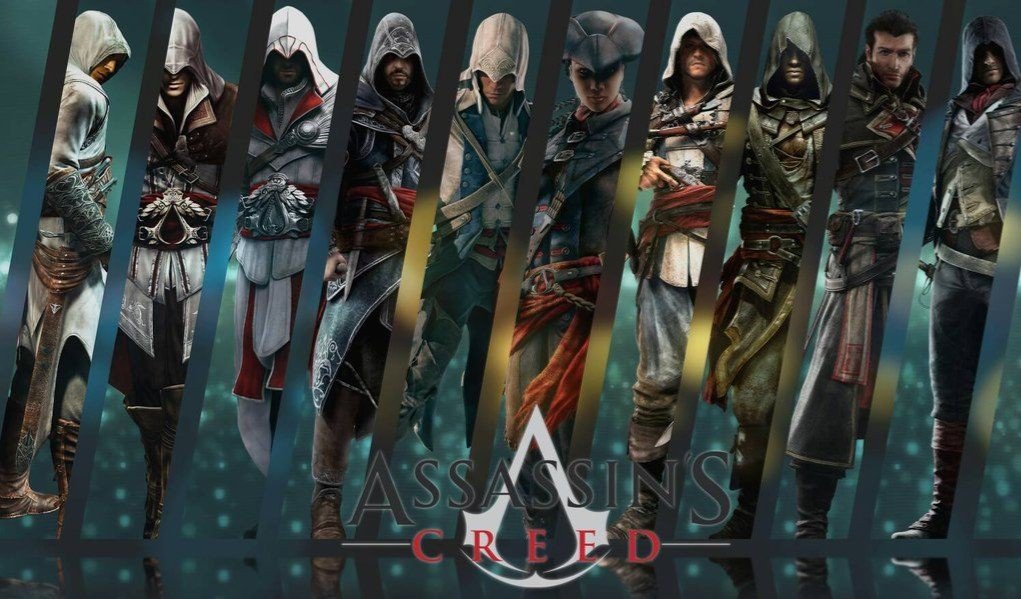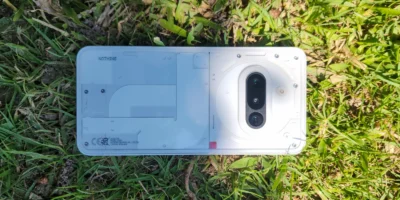I’ve been a long time fan of Ubisoft’s Assassin’s Creed franchise from the beginning. I’ve played every entry in the mainline series, a handful of spin offs and of course seen the movie. The concept has pretty much stayed the same in the 13 years since the franchise began – take a historical setting, add a conspiracy story and put the player in the centre of it.
The main character is an ancestor that the player is able to relive their genetic memories so as to solve a problem in the modern day world. How do they do this you ask? Because science, that’s why!
With a franchise with so many instalments, there have been stronger ones, weaker ones and some that felt like the series has lost its way. The modern day story for example was sort of dropped for a number of years, but has made a successful come back in recent games – something I am happy about as it ties the whole series together.
Ubisoft have definitely experimented throughout the series and have learned what works and what doesn’t. The naval warfare elements were hugely successful, whereas mini games such as tower defence or chance games were massive flops and not revisited (aside from remasters).
With all the ups and downs, I’ve stayed a loyal fan, returning for each new release. So with the latest entry, Assassin’s Creed Valhalla, only a few weeks away, here is my version of Ranking The Assassin’s Creed Games. I’ve not included games that have never had a home console release – so no Bloodlines or mobile games here! So without further adieu, let’s get started with…
13. Assassin’s Creed Liberation (2012)
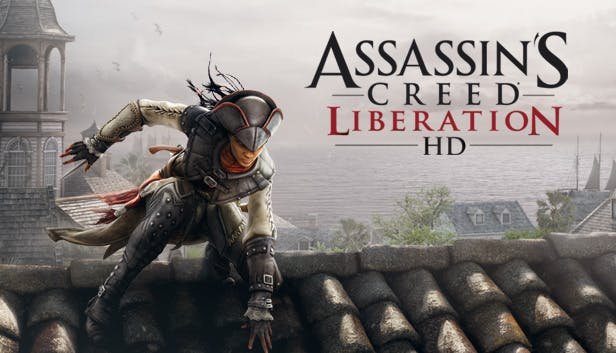
Liberation was a pretty memorable entry in the series as it was the first time the franchise allowed you to play as a woman. This was originally released on the PlayStation Vita alongside the release of Assassin’s Creed III (and you even cross paths with Connor Kenway at one point) and you can certainly feel it’s influences. Being a handheld game did limit the gameplay, which felt basic, and the range in which the story could reach. Luckily, this was remastered for the PS3 system and then again later for current gen consoles.
There were some truly innovative features applied to this one such as being able to change your wardrobe in order to fit in with different crowds of different social classes which was a brilliant idea, advancing the already well established social stealth mechanic. The whole story followed the basic format of the protagonist stopping the Templar order from taking control of the area and it touches on the slavery issues which were explored in more detail in later instalments. I personally don’t think there are really any bad entries in the franchise, but due to the constraints of the technology it was originally released on, this is my least memorable of the series.
12. Assassin’s Creed (2007)
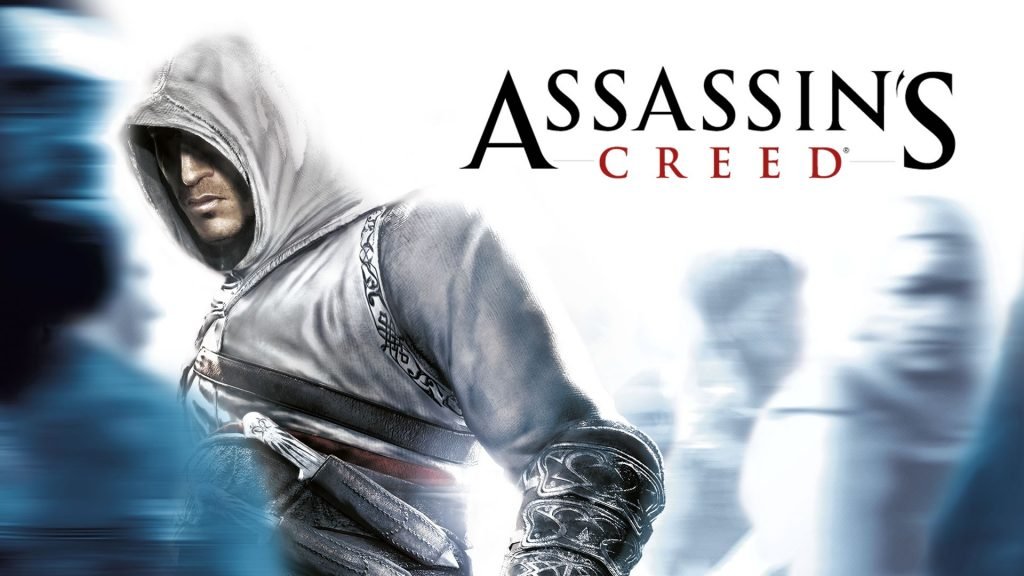
The original. The one that started it all. And the one so many have not played. When this was released back in 2007, it was a very impressive game that featured big crowds and plenty of historical details. If you play it today however, it’s a different story. It feels like a basic template of a better game that hasn’t been filled yet. I can only describe this as the franchise blueprint. The concept was fresh and new – modern day technology allowing people to unlock and relive genetic memories of their ancestors, and a centuries old conspiracy of the mysterious Templars and the Assassins was what peaked my interest. The stealth gameplay was a fantastic leap forward too with the ability to hide within crowds, unlike what I was used to at the time – hiding behind a wall until the enemy turned around.
Thirteen years after its release and you can understand why it’s so low on my list. The controls are stiff, combat is clunky, the world is a bit too boring and the protagonist, Altaïr, is seriously underdeveloped when compared to other characters in the franchise, which is a shame as he had real potential (thankfully explored in a later title). This is still worth playing as it sets up the whole franchise with the modern day story connecting it well with the broader franchise story and established many key features like the hidden blade, parkour and of course, assassinations. It’s a real shame that this is the only game in the series not to have been remastered on current gen consoles!
11. Assassin’s Creed Chronicles (2015)
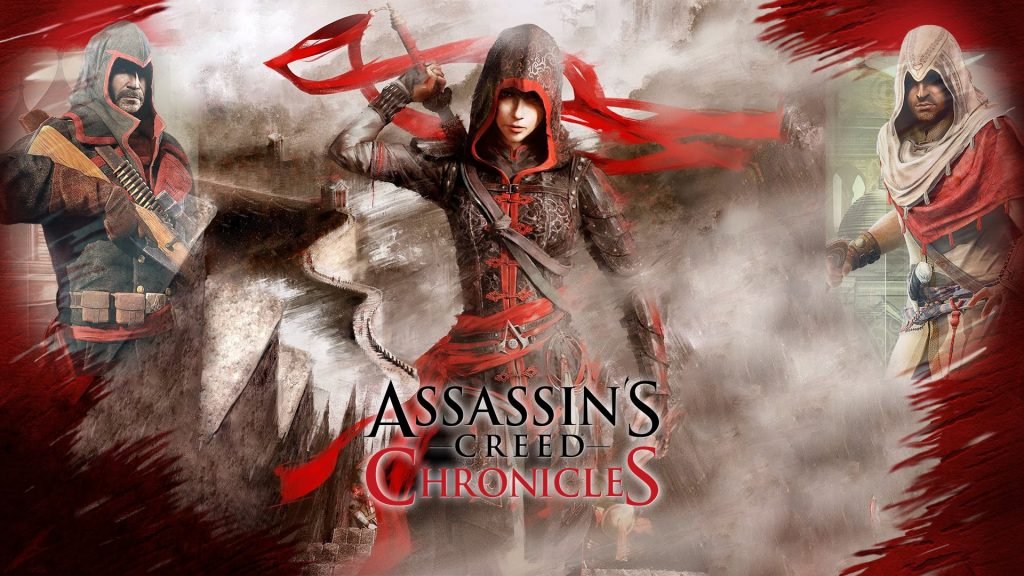
A little less well known, Assassin’s Creed Chronicles is a trilogy of smaller games that were released at intervals during the time when the franchise was taking a much needed break from the annual open world releases. These were 2.5D platformers that were quite fun to play although players may struggle with distance or depth perception at times, which can be highly frustrating. You can feel these were Ubisoft’s attempt at experimenting with the franchise, maybe to expand it or to just wrap up some details that were left open in the larger games.
The visuals however do look incredible. The style changes with each entry to reflect their time and settings – China, 1526, India, 1841 and Russia, 1918. The latter two revolved around pre-established characters from the comic books while the protagonist from China debuted in the Assassin’s Creed Embers short film depicting the last days of Ezio (who makes a welcome cameo here). A flawed set of games but fun all the same with the added benefit of expanding the mythos of the franchise.
10. Assassin’s Creed Revelations (2011)
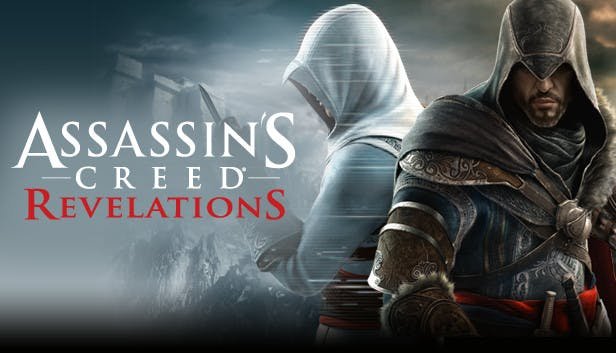
The final entry in the Ezio Trilogy, Revelations was the last hurrah of fan favourite (and now much older) Ezio Auditore Da Firenze. Ubisoft took the chance to wrap up the story of Altaïr from AC1 here too in a series of flashbacks which was something, I think, worked well. Now a Master Assassin, Ezio has travelled to Constantinople to seek the hidden library of Altaïr and to end the Templar threat there.
Just as with Brotherhood, the game was developed using the same tech as Assassin’s Creed II and as a result the game didn’t feel as fresh as it could have been. Also, Revelations featured the much disliked tower defence mini game which I remember was an absolute chore whenever it cropped up and felt out of place, as if they put a mobile game in the middle of a AAA game! But hats off to Ubisoft for trying new things, like the multiplayer feature the year before.
9. Assassin’s Creed Unity (2014)
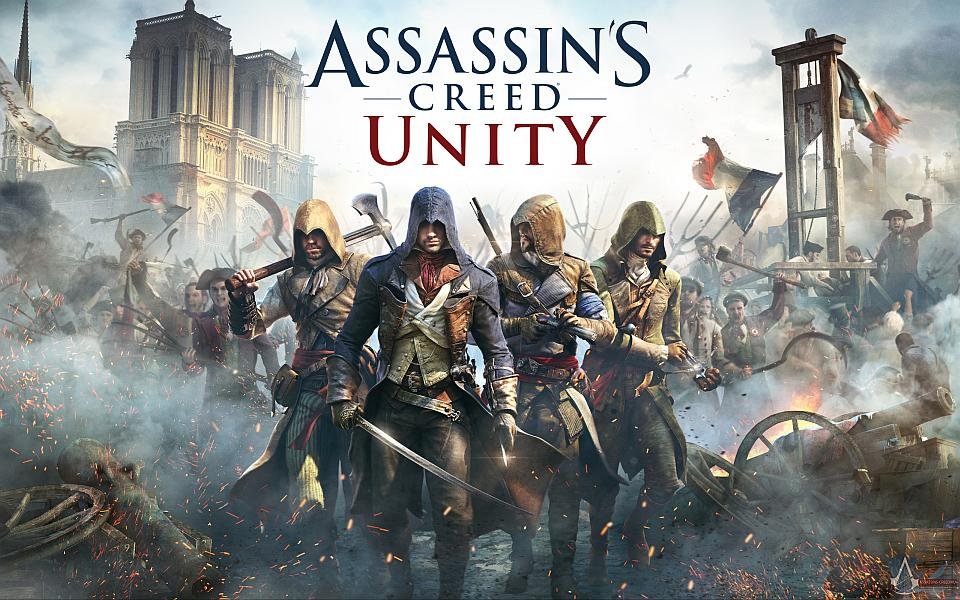
Many will remember Unity as “the broken Assassin’s Creed” as at the time of release it was riddled with bugs, some were funny, some frustrating and some just horrifying! We can all agree that it just wasn’t finished and I think Ubisoft learned a valuable lesson about deadlines and quality. But the game has had numerous patches that have sorted these so looking past that debacle, the game itself is pretty decent although it can be forgettable. The setting of Paris during the French Revolution was beautiful and with improved mechanics, free running across the city was fun and so smooth.
The story, although pretty good when you’re playing, is quite forgettable and the lead protagonist, Arno Dorian lacked charisma that we had seen with the likes of Ezio and Edward Kenway. In an attempt to shake things up, the multiplayer mode was changed from a versus setup to a co-op one. I much preferred this as I was never that great at multiplayer and I’m personally thankful that this was the last AC outing with a multiplayer mode.
8. Assassin’s Creed Rogue (2014)
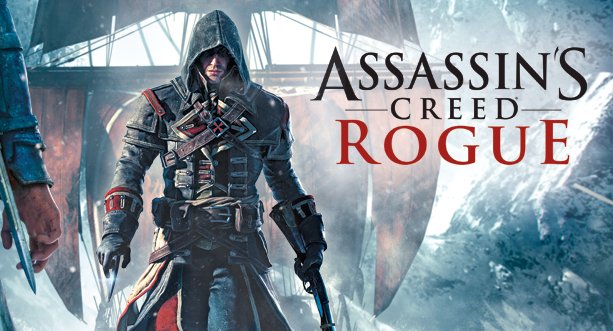
Rogue confused me. Or to be precise, Ubisoft’s decision to release it exclusively on the previous gen consoles when AC4 was released on both gens the previous year. So it’s safe to say that I initially skipped this one and focused on the much more promoted Unity. However, I did go back and play this soon after and discovered an incredible story that was fresh and intriguing. The big hook of this entry is that you start off as an Assassin who switches sides to become a Templar. Throughout the series, I had been so sure that the Assassin Brotherhood were the good guys, who had the right viewpoint, but this turns it all on its head, making you question what you know and understand.
The downside of this entry is that it does feel like it’s been thrown together using old parts. With the strong naval influence, it feels like a new skin over Black Flag and then plays like AC3 as it was built on the old systems. Thankfully it has been remastered onto current gen consoles so this is not as much of a problem now. This is another entry in the franchise that is not played as much, but it certainly should not be skipped. I highly recommend playing this if you’ve missed it or were thinking of skipping as it fills in the gaps between AC3 and AC4 and the ending links nicely into Unity too.
7. Assassin’s Creed III (2012)
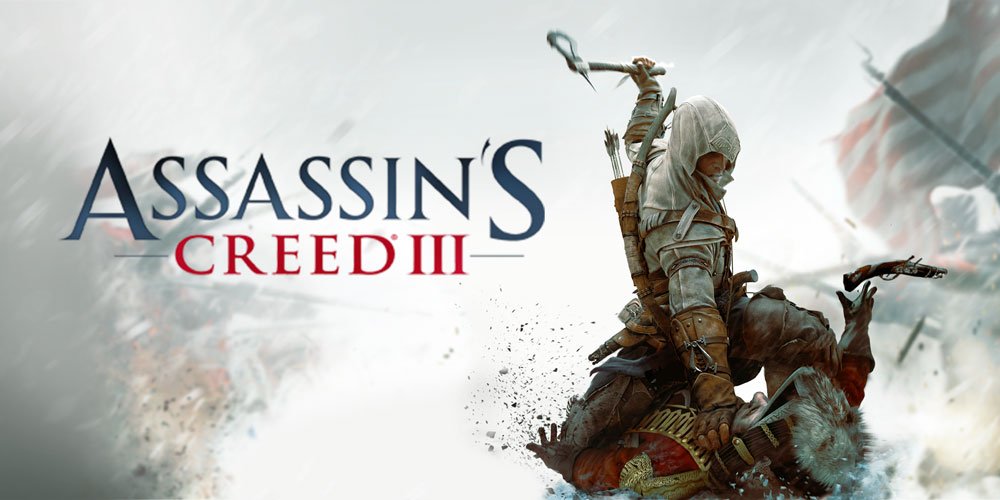
Probably the longest intro in the franchise, but with the best twist to start this adventure off with, Assassin’s Creed III was a mixed bag for everyone, which is why it sits in the middle of this list. This is in fact the fifth game in the mainline series, but having three in the title tells you this is the next chapter in the franchise – I also recall an interview with a developer who said they would have a numbered AC game whenever there was a new main character… this lasted until the following year!
This was the last game to feature the modern day story prominently for some time as it wrapped up the Desmond story that began with the first game. It was a fantastic ending as well, but then the series just continued and it feels like Ubisoft weren’t too sure what they were going to do with it. But with this game, it was a brand new era, setting and cast of characters as we got to explore the American Frontier and meet more historical figures including the first President, George Washington. The gameplay was improved from previous entries in terms of controls and the story was bigger. And of course, the dawn of the naval warfare feature that would be featured in four more future instalments (and most likely in Valhalla too) was seen here.
6. Assassin’s Creed Odyssey (2018)
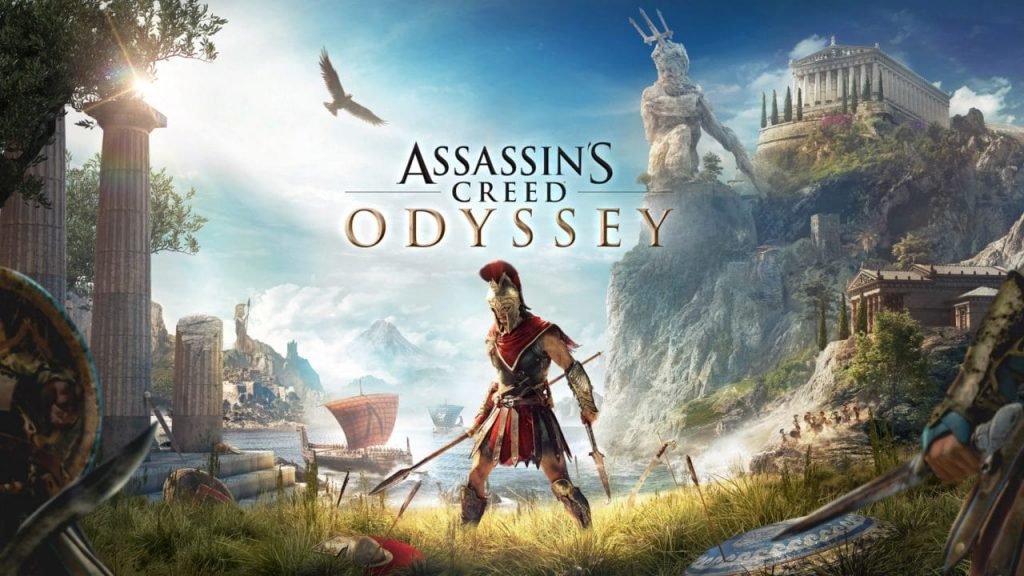
The most recent entry in the franchise is a strange one for me. I absolutely loved this one and gave over two hundred hours of my life to it with the DLCs included. It felt very similar to Origins at times, which is understandable as it took the base tech and gameplay from it and expanded it to an absolutely gigantic world, which was brilliant. What I didn’t like was that it felt so far from what Assassin’s Creed had been. It feels more like a stand-alone RPG and didn’t include any of the key features of the franchise. There are no hidden blades, no big assassinations and not even the words Assassin or Templar were even used. The only connection here is the modern day story continued into this one.
This is set a few hundred years before Origins, so it makes sense, but for die hard fans it feels out of place. That being said, the story of family is strong and very compelling. The new feature enabling you to choose to be either male or female is a fresh addition (but hard to know what is canon, especially as these are meant to be genetic memories) and it gives the player freedom to be whoever they want to be in terms of skills and even sexuality. One of the best games of 2018 for sure but due to it being so far removed from the rest of the series, I rate it in the middle range.
5. Assassin’s Creed Syndicate (2015)
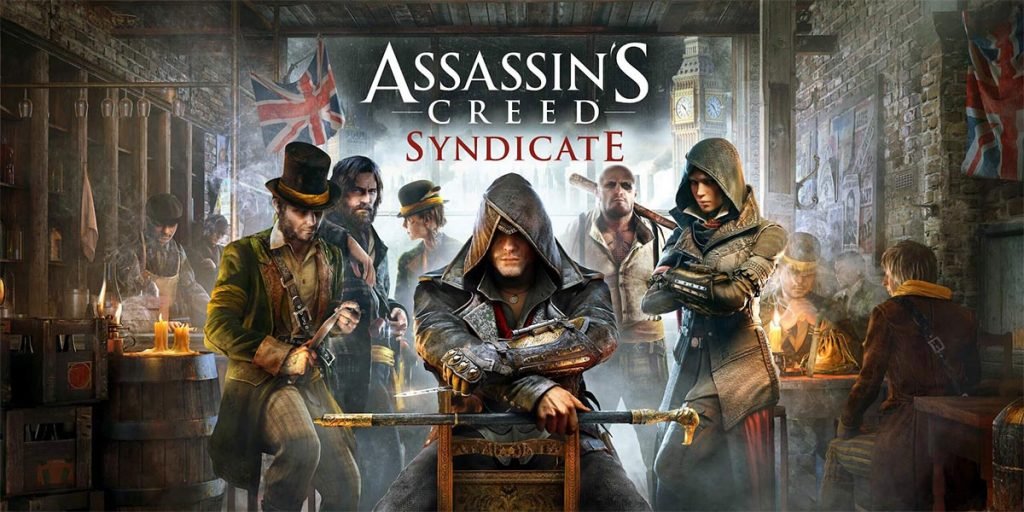
Just as Brotherhood and Revelations did with AC2, and Odyssey did with Origins, Syndicate took the base tech from Unity and expanded upon it and in doing so, created a far superior and exciting game. This was the first time that the player can play as two different Assassins in the form of twins Jacob and Evie Frye. These characters were far more fun to be and the game was a little more light-hearted in the most modern setting to date – Victorian London.
Spanning over several boroughs of the capital city, the world was much more fleshed out, allowing you to steal carriages, take part in underground fighting contests and starting gang wars on the streets! The story was brilliant from what I remember too. But as with a franchise this big and releases so often, it can fade from memory easily. Featuring some of the best side-quests the series has to offer and including the grappling hook to help speed your traversal, this game keeps you entertained for hours. And, in a time when open world games are so large they can take months to finish, I liked that it took just a couple of weeks to complete.
4. Assassin’s Creed Origins (2017)
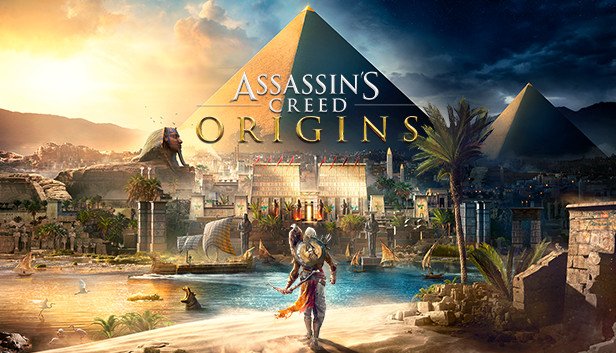
Origins, for me, stands out in the series. It was the triumphant return to form for the franchise in many ways. This was the first game in the mainline series after a two year break and it felt like it was well rested and had some fresh ideas to bring to the table. As with Odyssey the following year, this plays more like an open world RPG, losing more of the stealth focused missions of the “classic” Assassin’s Creed games, but at the same time it felt the right way to go with it. It brought back the modern day story to be more integral without getting in the way of the historical story and told the beginnings of the Creed as we know it, with Layla Hussain taking the modern day reins left unused for far too long since Desmond’s departure.
The incredible ancient Egyptian setting was absolutely beautiful and really makes this entry stand out compared to the more dark and dingy settings of recent years. Combined with an all new combat system which had you actively fighting rather than just waiting to parry and counter made this a delightfully more challenging game. As expected in a desert region of ancient times, there really isn’t much to be free running on so parkour took more of a backseat in this one, which was a little bit disappointing, however they made up for it by being able to climb pretty much anything and everything! This is definitely one of the best in the franchise.
3. Assassin’s Creed Brotherhood (2010)
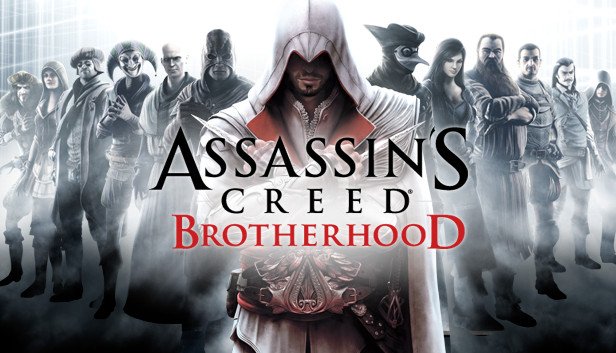
Many may question why I would rank this entry so high. For me, this was the first AC game I got on release, and after being blown away by the fantastic Assassin’s Creed II, I was pleased to revisit Ezio and continue his adventures. Brotherhood feels to me like the second part of a larger game – much like when Sonic the Hedgehog 3 and Sonic & Knuckles were released as they were the same game cut in two for release – and it works well. It was familiar as it was built from the same tech as AC2 and had a similar setting with many returning characters, but at the same time advanced the story and gameplay too.
Introduced in this game was the concept of brotherhood as you recruited new Assassins and have them train to become masters themselves. This deepened the mythos for me and just freshened up the gameplay just enough to keep it interesting. But the biggest addition was multiplayer. It doesn’t sound like this would work as the series is such a single player, story driven game, but Ubisoft made it work. It was so different to what was already available as you were playing both the hunter and the hunted forcing you to concentrate and be alert at all times. This feature was tweaked and added to so much in following instalments, it did become my least favourite aspect of the franchise until it was eventually scrapped altogether.
2. Assassin’s Creed IV: Black Flag (2013)
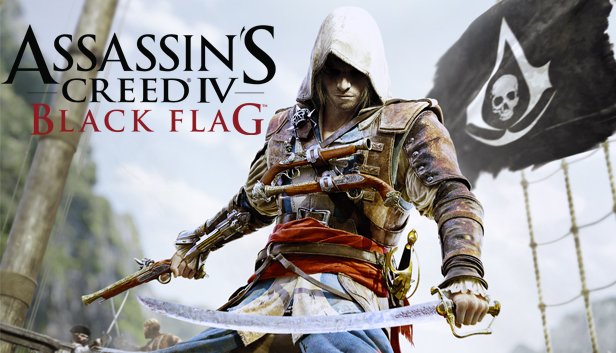
Assassin’s Creed III introduced the naval command and warfare feature to the series, but Black Flag really went with it, turning it into the big hook of the game and expanded it into a fully fledged pirate simulator and cemented this game as one of the greatest in the whole franchise! But it didn’t just expand what was already there, it improved it too. One of the most frustrating things in AC3 was having to wait for the game to load every time you boarded and disembarked the ship. That was no more here, meaning you could go about your pirate business uninterrupted.
Now this was the first in the series where the modern day story was almost entirely abandoned. In place of the Desmond story were a few first person sequences that explained how the “bad guys” now use the genetic memory technology to make video games. It was a bit strange to begin with but soon turned into an adventure all it’s own. But the historical story of Edward Kenway (grandfather of AC3’s Connor) as he sails the Caribbean seas being a naughty boy and meeting famous pirates such as Blackbeard and his crew is one of the very best in the whole franchise, especially knowing the back story (or future events in this case). All the best parts of piracy is here – ship battles, sunken wrecks, buried treasure and even some catchy seas shanties!
There were still elements of the previous games, like “The First Civilisation” making an appearance or two which links it in well with the overall series while pushing the boundaries of where the franchise could go.
1. Assassin’s Creed II (2009)
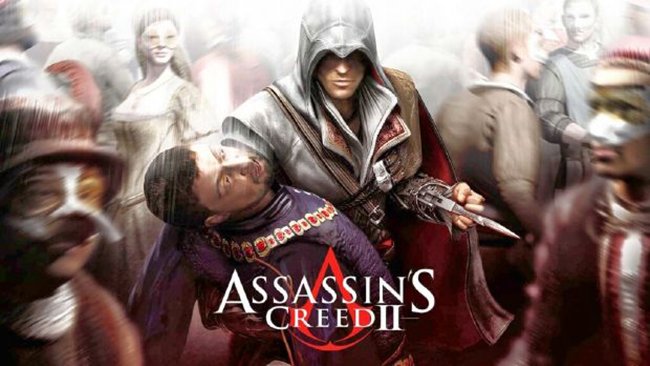
I said earlier that the original Assassin’s Creed felt like a blueprint or template of a better game. Well this was the better game! Everything from the first game was here but it was expanded upon and improved in so many ways. Ezio was far more fleshed out compared to his predecessor, making him much more interesting for the player to connect with him and really want to be on this journey of justice.
Not only that but the gameplay was greatly improved with the combat being much easier to get to grips with, the climbing/parkour was more fluid and enjoyable, the mission variety was, well it was here! The first game is criticised for being repetitive and boring, but this one has so many different things to do with side quests and collectables to look for. The move to Italy was perfect as well with the charming cities and residents – Leonardo Da Vinci himself was a genius inclusion as he provides Ezio with new equipment while also being entertaining.
Assassin’s Creed II was much larger than the first as well, not just in size but in story too. We got to learn more of the mysterious “First Civilisation” and the deeper connection of the historical story with its modern day counterpart which got much more screen time in this outing, creating a running narrative that would keep players coming back for more as we wanted to see how the war between Assassins and Templars would play out.
Conclusion
So there we have it, my ranking of Assassin’s Creed. I’m sure my opinions of the previous games may change in future if I were to go back and play them again, and with more instalments being released, they may shed new light on past games too. But for now, I can honestly say that Assassin’s Creed II will always be my favourite. To me, the first game was but a prologue to the second and that is where the series really took off.
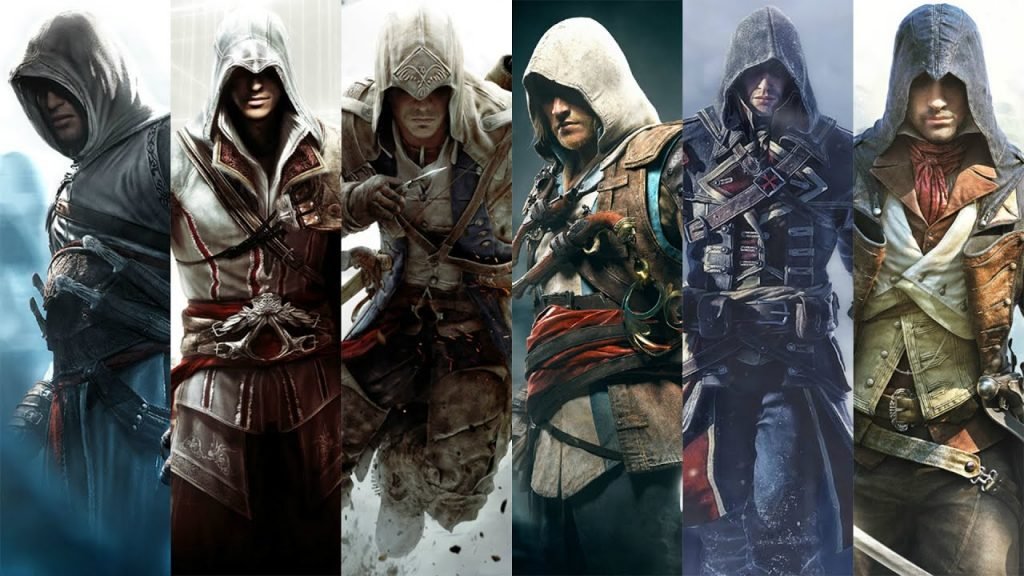
Looking forward to Assassin’s Creed Valhalla, I’m hoping it will start to loop back around to some more classic AC elements rather than just being an open world RPG with loose connections to the series as a whole. I miss playing a character that abides by the series philosophy of “work in the dark to serve the light” as the most recent games have been more about going in all guns (or swords) blazing!
Looking even further forward, I would also like to see the series return to its more humble size. I feel the franchise has got a little too obsessed with being bigger and bigger which to me is what puts many players off. With so many fantastic titles being released so close together, there just isn’t enough time to fully appreciate everything in them. With a more compact and streamlined story/setting, we can all enjoy the full experience.
Don’t forget to check our Game Review section as we will be reviewing Valhalla in the coming weeks & for coverage on the next gen consoles, don’t forget to check it out over here .
